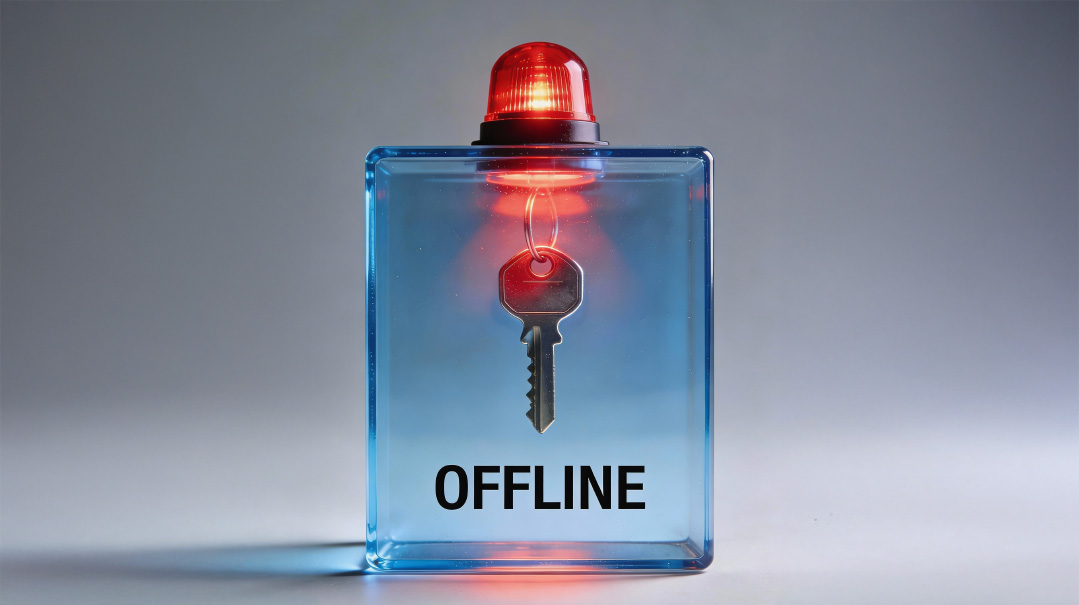Because Family Comes First


Eli
How could you choose your image over our relationship?
Mordy
As much as I want you to succeed, I can’t mix business and family.
Eli:
“Nu, nu, what’s going on?” Fagin never asked how you were, he just wanted the scoop.
“Baruch Hashem,” I said vaguely. I moved toward the parking lot. The last Maariv was over, it was time to go home.
Fagin followed me. “I saw you talking to your brother,” he prompted.
“Yeah.” I didn’t elaborate. “Have a good night.” No way was I going to tell Fagin what we had been talking about.
Mordy had just offered me a loan, a year after I had lost my job.
I made two decisions that night: I wasn’t going to take Mordy’s money, and I was opening a catering business.
Henny wasn’t sure about it. “We’re going to borrow capital?” she said. “Now, when we’re eating through our savings just to make Shabbos? Are you sure this makes sense?”
“Well, if I had a job offer…” I didn’t finish the sentence. “But I don’t. So it’s either keep waiting and hoping, or go out and do something.”
She folded a few shirts before she finally said, “What about Landau? Did you send him your résumé?”
“Yes.”
She folded a few more shirts in silence. She didn’t ask, and I didn’t offer anything; there was nothing to say.
Finally she sighed. I thought she was going to agree, but she said, “What about Mordy?”
“I don’t want his money.”
She paired a few socks while she considered this. “Maybe he has a job for you.”
“It’s not like that. Commercial real estate is its own game, it takes years to make a deal. He has properties, he buys, he sells, he refinances, it’s all about brokers and banks. I have no experience—”
“Oh, please, he has so many people working for him, plenty of young guys who know practically nothing.”
“And he pays them practically nothing, too, I assume. Am I asking him for a handout? An entry-level position, with a salary that can support a family of seven?”
I didn’t want a handout disguised as a loan and I didn’t want a handout disguised as a job. The next day, we applied for a line of credit against the house (0% for three years) and filed an LLC.
When Fagin asked me again, 24 hours later, how the job search was going, I told him it was over.
A year later I was sweating. The end-of-year reports told me what I already knew: we weren’t making it. A kiddush here, a vort there. A bris most days of the week. A few bar mitzvahs each month, the occasional aufruf. It was covering costs, plus a little. Too little. And all the running around was killing me. What I needed was a break into the high-end simchah industry.
But I was the budget caterer in town. How was I going to get Rothberger to hire me for his daughter’s Shabbos sheva brachos? He wouldn’t even take me for his einekel’s upsheren.
When I came home from Engel’s bar mitzvah, I was in a bad mood. He was an old neighbor, had made a gorgeous affair in the Venice ballroom at the Palace.
“The frustrating part is that I know I could do that,” I vented to Henny. “I could have made that bar mitzvah. I can do food like that, I can do presentation like that, I can do service like that. But I don’t have the opportunity to show people what I can do.”
“Pity we aren’t making a bar mitzvah soon.” She had a wicked gleam in her eye. “We could make an over-the-top affair, show everyone what you can do, and write it off as a business expense.”
Our oldest was only eleven, and she was a girl. But that gave me an idea. “How old is Yoni?”
“Yoni who?”
“Yoni. Our nephew. Mordy’s son. He was born the same time as Chaya, no?”
“Um, yeah, maybe.”
“And Chaya is eleven! Almost twelve!”
“And…?”
“And that means Yoni is almost twelve.” I almost laughed with relief. Mordy was making a bar mitzvah soon. And that would definitely be a high-end simchah. I did some mental math — I could hang on for another year. That would be my big break. I knew how these things worked — one rich guy uses a new caterer, and suddenly he’s the in-show in town.
When I left Shacharis the next day Fagin stopped me, like he always does. “How’s business?”
“Looking good,” I said.
I threw myself back into the business with new focus. I had a plan now. I followed the industry, sourced new products, added upgraded options to every part of the menu. I hired someone to create desserts and someone else to design the buffets and carving stations.
I was confident enough that when Weinberger’s daughter got engaged, I called him myself and offered him a package deal for the vort, wedding, and Shabbos sheva brachos. He was nice, explained that he was a partner at Castle Terrace, but then he called me back and said they were making a small affair, just for family, at the nursing home where his mother lives, because she couldn’t make it to the vort. I took what I could get — it was good practice, and I could tell people I had done an event for him (and he could tell people, too).
I signed an exclusive with a new chocolate distributor just in time. When the time came to meet with Mordy about the menu for Yoni’s bar mitzvah, I would be ready.
It was a lot to juggle, especially since business was still slow.
“I don’t know why they call it cash flow,” Henny said. “It’s more like cash trickle.”
“Trickles in, flows out,” I said.
She rolled her eyes but she smiled. “I shouldn’t be complaining, you work so hard, I’m sorry.”
I was working hard — very hard.
“It’s going to be great, you’ll see. We’re getting there.” I had a goal, I could hold on now.
We always host the family Chanukah party. Henny planned the usual — nice paper goods, a grab bag for the kids, balloons.
“But this year the food is your department,” she said gleefully.
Cash flow was still an issue, but this was an investment. I had my guys make mini tortilla dip bowls by hand, with three different flavors of artisanal sour cream. (“Nobody wants artisanal sour cream,” Fagin smirked, after he bugged me so much that I threw him this tidbit. “Sour cream is supposed to be traditional, not artisanal.”)
Henny also laughed as I set up the party. “Don’t worry,” I assured her. “Just a little upgrade.”
I was putting out more latke sliders when I heard my sister-in-law’s voice. “I love those scallion sculptures in the sour cream cups,” Shevy said. “Mordy, did you see this?”
Mordy wandered over. I kept my back to them and tried to look busy and listen at the same time.
“Nice,” Mordy said.
“It’s the perfect garnish for an appetizer plate, no? And so ahead of trend.”
“Daaaaaddy! Sara took my present!”
“One minute, sweetheart…”
“…caterer,” I heard Shevy say. I strained to hear.
“Daaaaaaddy!”
“So call him,” Mordy answered.
Sara pulled me away.
I knew I shouldn’t think about it but I couldn’t help it, I just kept turning that piece of conversation over in my mind, trying to figure it out. What did they mean? Had they hired another caterer? Or were they talking about me? But Mordy said “call him.” Not “ask him,” which would have made sense, because I was right there.
I was reading way too much into this, I knew that, but every time I scrolled through the numbers, every time I had an empty night, every stripped-down, bare-bones event I catered, I thought about it again. I became very aware of the passing of time. Yoni’s bar mitzvah was in a year… ten months… eight months…
“You guys book a hall yet?” I blurted when I met Mordy and Shevy in the lobby at Goldkranz’s daughter’s wedding. It was a lower-end hall, but I made it as nice as I could for the price they could pay. “For Yoni’s bar mitzvah?”
“Sure.” Shevy looked surprised. “You know, you have to book a year in advance at least, to get the date you want.”
“I do know,” I said with irony. “So where’d you book?”
“Crown Atrium,” Mordy said.
“Are you catering your brother’s bar mitzvah?” Fagin asked me when I saw him at the smorg.
“Why don’t you ask him?” I snapped.
The day we got the bar mitzvah invitation we also got the letter from the credit union — our three years were up and interest rates were kicking in on the loan.
I had to tell Henny, no choice. “We can keep plugging away,” I said. “Keep doing what we’re doing, keep trying to build up slowly. But at this point we have no more cushion and the payments are getting bigger. We need to decide if it’s still worth it.” I couldn’t look at her.
“I don’t understand,” she stammered. “We knew when we took out the loan we’d never be able to pay it all back in three years. What was the plan?”
“The plan?” I couldn’t look at her. “Honestly, I was hoping we would be doing better. I thought we could break into the high-end market.” I glanced at her, her face was white. “But Mordy…”
She didn’t get it. “Mordy what?”
I slammed the papers down on the stable and kicked my chair back. “Mordy didn’t feel like helping us out.” I knew I sounded bitter and I didn’t care.
“That’s not fair,” Henny protested. “Mordy offered you a loan!”
“Yeah, a loan. Money. Tzedakah. That’s good for his ego. He’s doing a mitzvah, he gets a tax deduction, he gets to be the hero.”
“You didn’t want him to offer you a job!”
“Whose side are you on anyway?” I regretted it as soon as I said it. I was losing it. “You don’t get it, Henny. Mordy’s happy to give me money, that makes him into a tzaddik. But to use me for the bar mitzvah — that ruins his image, he can’t do that.”
The bitterness choked me; I had lost my business and my brother in one fell swoop.
If I could tell Mordy one thing, it would be: How could you sacrifice our relationship for your image?
Mordy:
“Reb Mordechai, this is Binyomin Goldfinger, how are you?”
“Rabbi Goldfinger, what can I do for you?”
“Well,” he hesitated.
Maybe I had been too curt. I closed my eyes and tilted my chair back, trying to relax. “How are things coming along?”
“Good, good, thanks.” I listened to an update on the building fund and construction. Finally he said, “I wanted to check if you have your letter ready?”
My letter. I glanced at my desk. The blank white screen glowed accusingly in the darkness of my study. “I’m so sorry, Reb Binyomin, I know you asked for it. I’m actually sitting at my computer right now, you’ll have it in half an hour.” After profuse thanks he hung up.
I turned back to the screen and found the letter I had sent out when I chaired the Zichron Shevatim dinner. I pasted it into a new document, changed the names and places and added a new opening sentence. After a few more tweaks, I sent it to Goldfinger. No one reads these dinner-honoree letters, anyway.
“Why are you sitting in the dark?” Shevy walked into the study and switched on the light. I winced.
“Sorry.” She put a hand back on the switch and hesitated. “Should I turn it off?”
I waved a limp hand. “No, of course not, it’s fine.”
“Do you have a headache? Maybe you should go to bed.”
“I guess.” I didn’t move, though. “I’m just thinking about Eli,” I admitted.
“Oh.”
“Yeah.” I fiddled restlessly with my phone. “I offered him a loan,” I said finally. “But he won’t take it.”
Shevy sat down. “What happened?”
“I knew he wouldn’t take it. He supported his family just fine until now. He’s not going to take help so fast.”
“What’s the big deal? You’re always taking loans.”
I tried to laugh. “When you need cash to renovate a 300-unit mixed-use property, you’re supposed to take a loan. When you need cash to buy school supplies, you’re not supposed to take a loan.” I toyed with my phone, turning it over and over in my hands.
“Whatever you do, don’t offer him a job,” she said tightly.
I didn’t look at her, just waved my hand. We both knew that story too well.
“When you send out fundraising letters,” Shevy asked suddenly, “do you send them to Donny, too?”
Involuntarily, I glanced at the screen. “I do,” I said. “I try to treat him as if nothing ever happened.” Happened. Like none of us had any part in it.
The worst thing was that I had been warned. “You don’t mix business and family,” Zicherman had castigated me, right when I’d hired Donny, before anything had even gone wrong. “You want to help him, give him a loan. Mentor him. Don’t hire him! One day you’re going to have to choose between your business and your brother-in-law, and then what are you going to do?”
He had been sitting behind his desk, one leg up on his knee, and I stood facing him like a little boy in the principal’s office.
I didn’t like that feeling. And I didn’t agree with Zicherman, either. All I’d done was hire Donny to paint the new strip mall. Until now he’d been doing private homes only, usually rentals that were sprucing up between tenants. He did all the labor himself, sometimes hiring guys to help out if he got lucky and it was a busy time. He was itching to get into larger projects, make some real money. And I had a strip mall that needed to be painted. It was just a simple job. Don’t you do this for family?
But it wasn’t so simple. Donny had tried to cut costs by using a cheaper brand of paint. He was halfway through the job when I realized, and furious when I told him it needed to be redone. There was an argument over who would pay the additional costs of the project, and it stood undone for weeks. By the time I decided to just pay him his costs and then hire a new crew to start over, we were way behind schedule and lost money to our tenants when they couldn’t move in on time. Donny never forgave me for the profits he had lost and the damage to his reputation. I didn’t think his reputation was damaged; he went right back to painting houses, and I never talked to anyone about what had happened. But he never talked to me again, either.
Shevy bit her lip, still thinking about the letter. “I wonder if he sees it the other way when he gets the fundraising requests for all those dinners. Like you’re being callous and insensitive. Maybe it makes him angry, that you would ask him for money.”
“Makes him angry? He’s already angry. If I didn’t invite him, he would probably also feel like that was callous and insensitive. When you’re angry, everything feels callous and insensitive.”
For a few minutes we just sat there. Finally Shevy stood up. “You’ll find a way to help Eli,” she said firmly, choosing a happy ending because it made her feel better.
“Yeah.” After she left, I turned the light off again. I sat there a long time, just thinking in the dark.
Eli went into catering. He started small, but small is good, at least in the beginning while you learn the ropes.
“They’re managing without your loan,” Shevy commented, with relief in her voice. “Maybe it’s better that way.”
“They took out a second mortgage,” I said. I didn’t think that was better.
We booked the Crown Atrium the week Yoni turned 12, but I couldn’t bring myself to meet the caterer. “It’s too early,” I told Shevy. “You might want to eat something different in a year.”
She giggled. “I’m just excited.”
It was like everything was in context of the bar mitzvah. Wherever we went, Shevy looked for dיcor inspiration. She obsessed over the royal wedding, dreaming up her own perfect ensemble. When we went to Eli and Henny for the yearly Chanukah party, she was totally focused on the food.
That gave me an idea. I was financing a new project in Texas with a guy called Weinberger. When we walked out of the closing together, he told me his daughter had just gotten engaged.
“Mazel tov!” I grasped his hand. “You should have a lot of nachas.” Then, although this wasn’t my type, wasn’t really appropriate, I said, “My brother is a caterer. My wife calls him ‘ahead of trend.’ ”
Weinberger raised his eyebrows. “Eli Brenner is your brother?”
“How do you know him?”
“He called me.” Weinberger stared straight ahead for a minute. “I’ll tell you the truth, I can’t use him. I can’t use a newbie, no matter how talented.” A moment ago we were partners, now there was a mixture of awkwardness and pity. “It’s not… my wife would never go for it. You know how these things work.”
I forced the words out of my mouth. “Maybe just for one of the smaller things, a sheva brachos or something?”
Weinberger looked hard at me. “Maybe.”
A week later Eli told me that Weinberger had contracted him to cater a second vort where his elderly mother-in-law lived.
“That’s great,” I said.
“Yeah, we’re doing something beautiful.”
I called Weinberger two months later to talk over a new deal in Carolina. “When’s the wedding?” I asked him, after we had exchanged greetings.
“One more month, right before Pesach.”
“Wow, a busy time. You should have a lot of simchahs.”
“Thank you, you too. You’re making a bar mitzvah soon, no?”
“A few more months, yes.”
There was an edge in his voice. “I guess your brother is catering it.”
I wasn’t prepared. “Uh, actually, no, not this time.”
“I hear.” His voice was smooth, like he was just wondering idly about a thing of no consequence. “It’s hard to use a newbie. Even if they’re ‘ahead of trend.’ ”
“Did… did something happen?” I stammered.
His voice sharpened. “Why make me the guinea pig?”
“My wife…” I said weakly.
“Of course.” He hung up. I never got to tell him about the hotel in Carolina.
I was humiliated. I was trying to help Eli, and Weinberger accuses me of pawning the responsibility off on him. He had no idea what he was talking about!
The worst thing was that I could totally understand why he saw it that way. I obsessed about the conversation for weeks.
“Do you think we could use Eli for the bar mitzvah?” I blurted to Shevy on the way into a wedding. “It’s just another event…”
Her face closed. “Yeah, and with Donny it was just another paint job. Is that a risk you’re willing to take?”
“It’s not the same thing,” I tried. It sounded hollow.
Shevy stopped walking. “You know,” she said, “our first son is taking his place among the men of Klal Yisrael. He’s going to lein, make a speech, wear tefillin. We planned a beautiful simchah and I spent thirteen hundred dollars on my dress, and my mother isn’t even going to ask for pictures, because Donny and his family aren’t going to be there!” She was breathing heavily. “Is that what you want your side of the family to look like?”
No. No, that was not what I wanted my family to look like.
I was still ruminating darkly when a guy came up to me, holding a plate of sesame chicken and rice.
“Your brother did this, no?” he said, nodding at the smorg.
“Yes.” I tried to conjure the guy’s name from my memory. Feder? Friedman? I recognized him from shul.
“So, you gonna use him for your bar mitzvah?”
I looked at him, his whole body leaning forward, eagerly waiting for my answer, and I knew exactly what was going to happen: He was going to tell the whole shul that I wasn’t using my own brother to cater my simchah. An embellished version, of course. Probably some sort of family feud — a childhood rivalry, a fight over an inheritance, maybe a betrayal involving a broken shidduch or a deadly illness or both. Eli would be the beleaguered family man, I would be the hypocrite who built shuls with his name on them but abandoned his own brother, and this guy — Fagin, right, that was his name — would retell the scoop for years.
If I could tell Eli one thing it would be: Our relationship is way too important for me to risk it on a business deal — even to protect my image.
(Originally featured in Mishpacha, Issue 735)
Oops! We could not locate your form.







